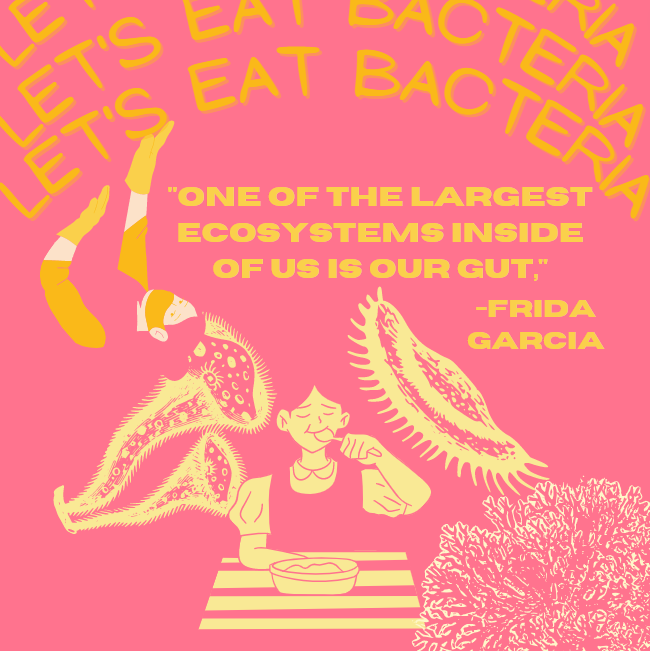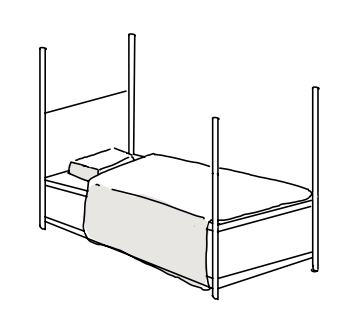Wellness: let’s eat bacteria!
Four billion years ago, the Earth was on fire. A rich thermal landscape was erupting with geysers, and these bubbling beginnings formed one of the first lifeforms known to this universe- a simple fatty cell. RNA began to self-replicate, and heat fluctuations combined with environmental turbulence kick-started the cellular life cycle.
Over time microbes developed diverse communities which evolved to full fledged organisms– including us. Now, we are similar to the geysers which held the first life forms of bacteria. Millions of these beings inhabit our bodies, living through their individual cycles of creation.
One of the largest ecosystems inside of us is our gut. Each person’s gut is individual to them, constantly adapting to an individual’s lifestyle. Energy is released and energy is absorbed by the inhabitants of our digestive system, and there are ways to strengthen and diversify our bacterial army, and in turn, strengthen ourselves.
It is now more important than ever to focus on our internal well-being in order to keep ourselves and the people around us healthy. It is comforting to know that small additions to one’s diet can have a big impact on immune strength and the power of bacteria in the gut. It is also important to note the direct correlation between gut and brain health- a homogenously stressed digestive system can trigger cortisol release in the central nervous system, contributing to unneeded anxiety, and also decreases cognitive wellbeing. So where can we find replenishing microbes and eat them up?
The answer ranges, but can often be found in any source of food that came to being under the process of time. Fastly manufactured, over processed, and even microwaved foods contain little of these important bacteria. Meanwhile fibrous veggies and fruits, whole grains, cultured yoghurts, blocks of stinky cheese, beer & wine, are rich in microbes. In their most potent form, supplemental probiotics come in both easy-to-swallow capsules and sweet chewables. Wherever one chooses to receive their dose of bacteria, it is important not to forget the power of the little machines working in our stomachs.
Hello there! Our goal is to provide relavent, engaging journalism for readers of all ages. Your donation will support the student journalists of the Wolfpacket at Claremont High School, and will allow us to purchase equipment, print our monthly issues, and enter in journalism competitions. We appreciate your consideration!

Frida Garcia is a senior at Claremont High School and the Head Features Editor of the Wolfpacket. Besides designing for the features spread, Frida’s...










